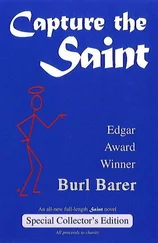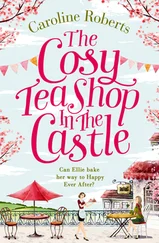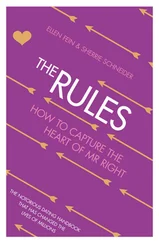Dodie Smith - I Capture the Castle
Здесь есть возможность читать онлайн «Dodie Smith - I Capture the Castle» весь текст электронной книги совершенно бесплатно (целиком полную версию без сокращений). В некоторых случаях можно слушать аудио, скачать через торрент в формате fb2 и присутствует краткое содержание. Жанр: Старинная литература, на русском языке. Описание произведения, (предисловие) а так же отзывы посетителей доступны на портале библиотеки ЛибКат.
- Название:I Capture the Castle
- Автор:
- Жанр:
- Год:неизвестен
- ISBN:нет данных
- Рейтинг книги:4 / 5. Голосов: 1
-
Избранное:Добавить в избранное
- Отзывы:
-
Ваша оценка:
- 80
- 1
- 2
- 3
- 4
- 5
I Capture the Castle: краткое содержание, описание и аннотация
Предлагаем к чтению аннотацию, описание, краткое содержание или предисловие (зависит от того, что написал сам автор книги «I Capture the Castle»). Если вы не нашли необходимую информацию о книге — напишите в комментариях, мы постараемся отыскать её.
I Capture the Castle — читать онлайн бесплатно полную книгу (весь текст) целиком
Ниже представлен текст книги, разбитый по страницам. Система сохранения места последней прочитанной страницы, позволяет с удобством читать онлайн бесплатно книгу «I Capture the Castle», без необходимости каждый раз заново искать на чём Вы остановились. Поставьте закладку, и сможете в любой момент перейти на страницу, на которой закончили чтение.
Интервал:
Закладка:
deep voice--that is, she puts one on; it is part of an arty pose, which includes painting and lute-playing.
But her kindness is perfectly genuine and so is her cooking. I am
very, very fond of her- it is nice to have written that just as she
appears on the kitchen stairs. She is wearing her ancient orange
tea-gown. Her pale, straight hair is flowing down her back to her
waist. She paused on the top step and said "Ah, girls .. " with three velvety inflections on each word.
Now she is sitting on the steel trivet, raking the fire. The pink
light makes her look more ordinary, but very pretty. She is
twenty-nine and had two husbands before Father (she will never tell us very much about them), but she still looks extraordinarily young.
Perhaps that is because her expression is so blank.
The kitchen looks very beautiful now. The firelight glows steadily
through the bars and through the round hole in the top of the range
where the lid has been left off.
It turns the whitewashed walls rosy; even the dark beams in the roof
are a dusky gold. The highest beam is over thirty feet from the
ground.
Rose and Topaz are two tiny figures in a great glowing cave.
Now Rose is sitting on the fender, waiting for her iron to heat. She
is staring at Topaz with a discontented expression. I can often tell
what Rose is thinking and I would take a bet that she is envying the
orange tea-gown and hating her own skimpy old blouse and skirt. Poor
Rose hates most things she has and envies most things she hasn't. I
really am just as discontented, but I don't seem to notice it so much.
I feel quite unreasonably happy this minute, watching them both;
knowing I can go and join them in the warmth, yet staying here in the cold.
Oh, dear, there has just been a slight scene!
Rose asked Topaz to go to London and earn some money. Topaz replied
that she didn't think it was worth while, because it costs so much to live there. It is true that she can never save more than will buy us a few presents-she is very generous.
"And two of the men I sit for are abroad," she went on, "and I don't like working for Macmorris."
"Why not?" asked Rose.
"He pays better than the others, doesn't he?"
"So he ought, considering how rich he is," said Topaz.
"But I dislike sitting for him because he only paints my head. Your Father says that the men who paint me nude paint my body and think of their job, but that Macmorris paints my head and thinks of my body. And it's perfectly true. I've had more trouble with him than I should
care to let your Father know."
Rose said: "I should have thought it was worth while to have a little trouble in order to earn some real money."
"Then you have the trouble, dear," said Topaz.
This must have been very annoying to Rose, considering that she never has the slightest chance of that sort of trouble.
She suddenly flung back her head dramatically and said:
"I'm perfectly willing to. It may interest you both to know that for some time now, I've been considering selling myself. If necessary, I
shall go on the streets."
I told her she couldn't go on the streets in the depths of Suffolk.
"But if Topaz will kindly lend me the fare to London and give me a few hints."
Topaz said she had never been on the streets and rather regretted it,
"because one must sink to the depths in order to rise to the heights,"
which is the kind of Topazism it requires much affection to tolerate.
"And anyway," she told Rose, "you're the last girl to lead a hard working, immoral life. If you're really taken with the idea of selling yourself, you'd better choose a wealthy man and marry him
respectably."
This idea has, of course, occurred to Rose, but she has always hoped
that the man would be handsome, romantic and lovable into the bargain.
I suppose it was her sheer despair of ever meeting any marriageable men at all, even hideous, poverty-stricken ones, that made her suddenly
burst into tears. As she only cries about once a year I really ought
to have gone over and comforted her, but I wanted to set it all down
here. I begin to see that writers are liable to become callous.
Anyway, Topaz did the comforting far better than I could have done, as I am never disposed to clasp people to my bosom. She was most
maternal, letting Rose weep all over the orange velvet tea-gown, which has suffered many things in its time.
Rose will be furious with herself later on, because she has an unkind tendency to despise Topaz; but for the moment they are most amicable.
Rose is now putting away her ironing, gulping a little, and Topaz is
laying the table for tea while outlining impracticable plans for making money --such as giving a lute concert in the village or buying a pig in installments.
I joined in while resting my hand, but said nothing of supreme
importance.
It is raining again. Stephen is coming across the courtyard. He has
lived with us ever since he was a little boy; his Mother used to be our maid, in the days when we could still afford one, and when she died he had nowhere to go. He grows vegetables for us and looks after the hens and does a thousand odd jobs--I can't think how we should get on
without him. He is eighteen now, very fair and noble-looking but his
expression is just a fraction daft. He has always been rather devoted to me; Father calls him my swam.
He is rather how I imagine Silvius in As You Like It but I am nothing like Phoebe.
Stephen has come in now. The first thing he did was to light a candle and stick it on the window-ledge beside me, saying: "You're spoiling your eyes, Miss Cassandra."
Then he dropped a tightly folded bit of paper on this journal. My
heart sank, because I knew it would contain a poem; I suppose he has
been working on it in the barn. It is written in his careful, rather
beautiful script. The heading is, ""To Miss Cassandra" by Stephen Colly."
It is a charming poem--by Robert Herrick.
What am I to do about Stephen? Father says the desire for
self-expression is pathetic, but I really think Stephen's main desire is just to please me; he knows I set store by poetry.
I ought to tell him that I know he merely copies the poems out--he has been doing it all winter, every week or so--but I can't find the heart to hurt him.
Perhaps when the spring comes I can take him for a walk and break it to him in some encouraging way. This time I have got out of saying my
usual hypocritical words of praise by smiling approval at him across
the kitchen. Now he is pumping water up into the cistern, looking very happy.
The well is below the kitchen floor and has been there since the
earliest days of the castle; it has been supplying water for six
hundred years and is said never to have run dry. Of course, there must have been many pumps. The present one arrived when the Victorian
hot-water system (alleged) was put in.
Interruptions keep occurring. Topaz has just filled the kettle,
splashing my legs, and my brother Thomas has returned from school in
our nearest town, King's Crypt. He is a cumbersome lad of fifteen with hair that grows in tufts, so that parting it is difficult. It is the
same mousy color as mine; but mine is meek.
When Thomas came in, I suddenly remembered myself coming back from
school, day after day, up to a few months ago. In one flash I re-lived the ten-mile crawl in the jerky little train and then the five miles on a bicycle from Scoatney station --how I used to hate that in the
winter! Yet in some ways I should like to be back at school; for one
thing, the daughter of the manager at the cinema went there, and she
Читать дальшеИнтервал:
Закладка:
Похожие книги на «I Capture the Castle»
Представляем Вашему вниманию похожие книги на «I Capture the Castle» списком для выбора. Мы отобрали схожую по названию и смыслу литературу в надежде предоставить читателям больше вариантов отыскать новые, интересные, ещё непрочитанные произведения.
Обсуждение, отзывы о книге «I Capture the Castle» и просто собственные мнения читателей. Оставьте ваши комментарии, напишите, что Вы думаете о произведении, его смысле или главных героях. Укажите что конкретно понравилось, а что нет, и почему Вы так считаете.












